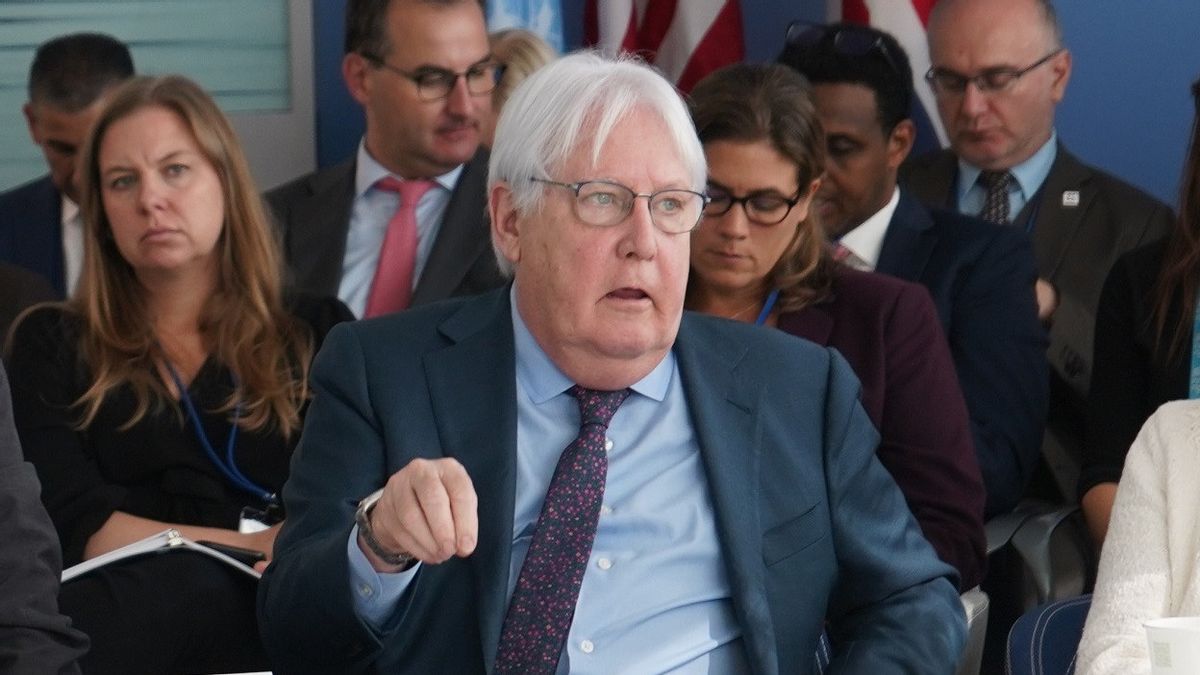JAKARTA - Chief UN Emergency Relief Coordinator Martin Griffiths announced plans to resign at the end of June, when many humanitarian crises including the Israel-Gaza war continued.
In a post on social media X Griffiths said he had informed UN Secretary General Antonio Guterres of his intention to step down, but did not give a reason for his decision.
"To everyone at @UNOCHA, this is a privilege in my life. I am very indebted to you," he wrote, reported by The National News March 28.
"To all partners and supporters, thank you for fighting for the community's struggle in the crisis," he said.
Griffiths, 72, told The Associated Press earlier this month that he had a severe case of COVID-19 in October and was still suffering from long COVID.
The veteran Welsh diplomat, known for his firm values and mediation skills, has served as deputy secretary general for humanitarian affairs at the UN since 2021.
In this role, Griffiths has been at the forefront of complex negotiations, most notably engaging with President Bashar Al Assad over access to earthquake-hit northern Syria, forging a landmark deal between Ukraine and Russia to safeguard grain exports across the Sea region. Black to face the impact of the flood disaster in Libya.
His announcement comes amid a significant humanitarian crisis in Gaza, with the specter of famine continuing to loom.
In an exclusive interview with The National last month, Griffiths said the crisis in Gaza was the worst crisis he had ever seen and this was for one very specific reason, Gazans were trapped as they had been for years."
"We now have a southern area around Rafah that normally has around 200,000 to 250,000 people," he said.
"We had about six times that number, congregating in that area, when the wall came crashing down on them from Khan Younis, as it moved south," he explained.
"Where will they go? It doesn't mean that Palestine wants a second Nakba," he stressed.
The UN aid chief has repeatedly called on Israel to allow humanitarian aid into the Gaza Strip as the country launches a military campaign in response to the Hamas attack on October 7.
Last month, he warned Israel not to ignore calls against attacks on Rafah, where some 1.5 million Palestinians have taken refuge, and warned that the Israeli operation “could lead to massacre”.
He also warned of other humanitarian crises around the world, including in Sudan, where the threat of famine is also growing.
"I imagine we will find suffering in Sudan as great as suffering in parts of Gaza and other parts of the world," he told The National.
"Suffering in Sudan due to the absence of international attention and international support for the Sudanese people is something that is deeply embarrassing for us," he added.
Griffiths previously served as the UN Secretary General's special envoy to Yemen and served as an advisor to each of the three special envoys to Syria, among other roles.
In 1994, Griffiths served in Geneva as director of the UN Department of Humanitarian Affairs, which preceded the creation of the UN Office for the Coordination of Humanitarian Affairs, which he now heads, quoted from PBS.
SEE ALSO:
From 1999 to 2010, he served as founding director of the Center for Humanitarian Dialogue in Geneva, where the UN said he specialized in developing political dialogue between governments and rebels in countries in Asia, Africa and Europe.
Griffiths served as the first executive director of the European Institute of Peace in 2014-2018 and he served as special advisor to three UN special envoys to Syria and as deputy head of the UN mission in Syria from 2012-2014, in the early years of the conflict there.
Early in his career, he was a British diplomat and worked for various international humanitarian organizations, including UNICEF, Save the Children and Action Aid.
The English, Chinese, Japanese, Arabic, and French versions are automatically generated by the AI. So there may still be inaccuracies in translating, please always see Indonesian as our main language. (system supported by DigitalSiber.id)


















